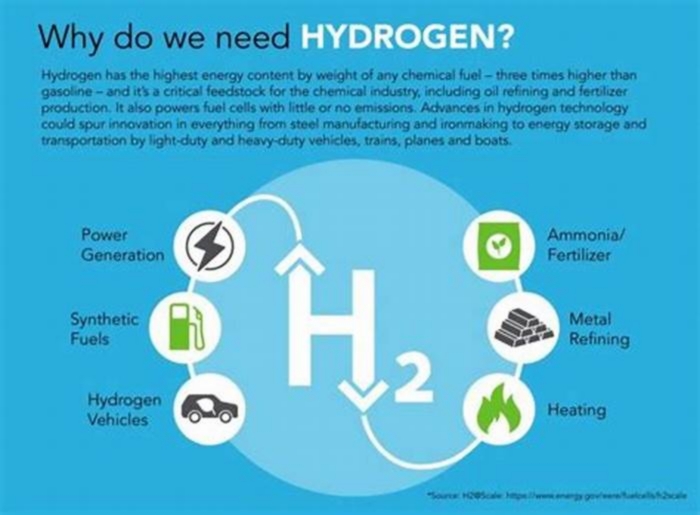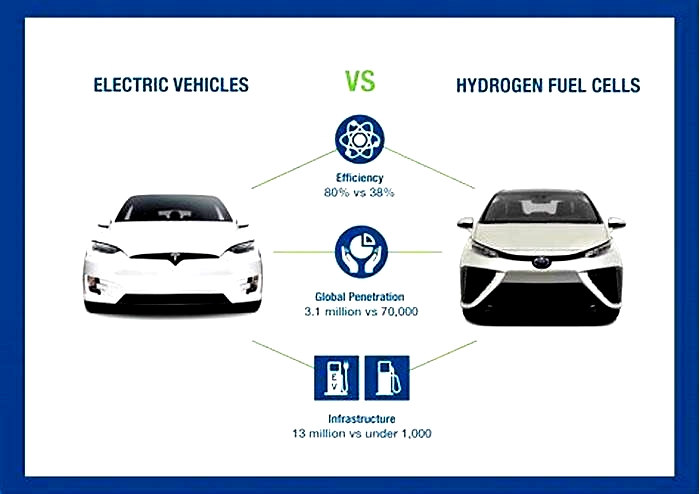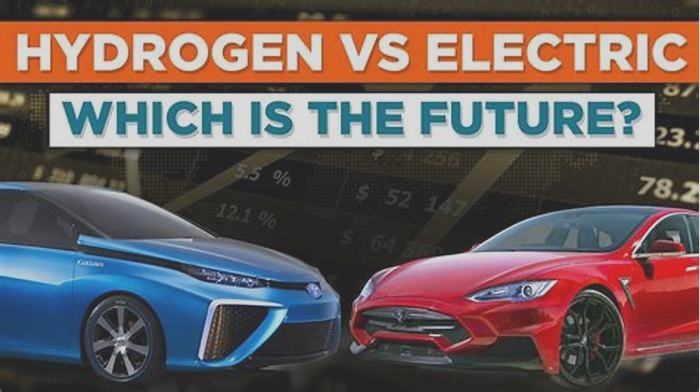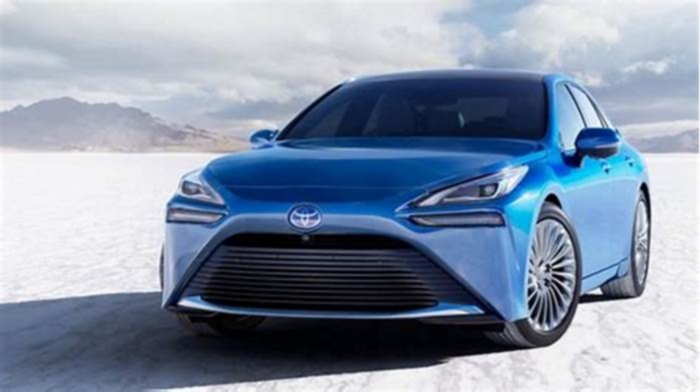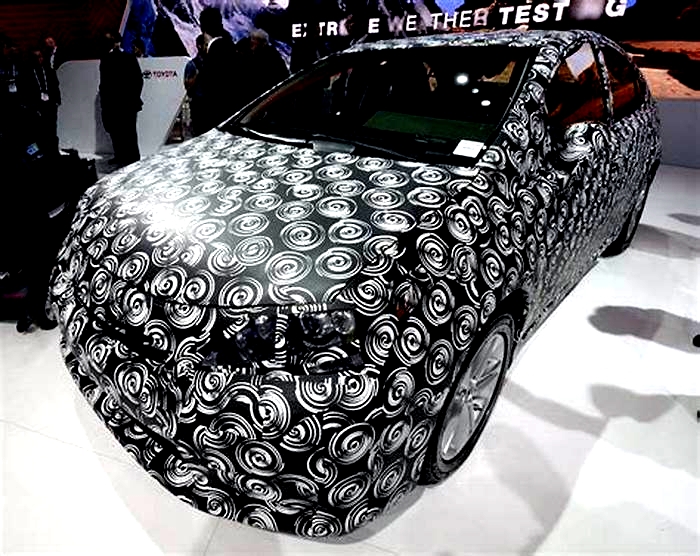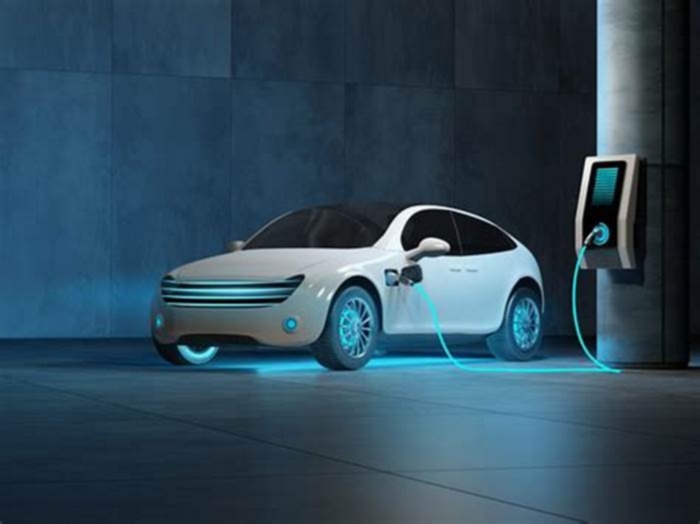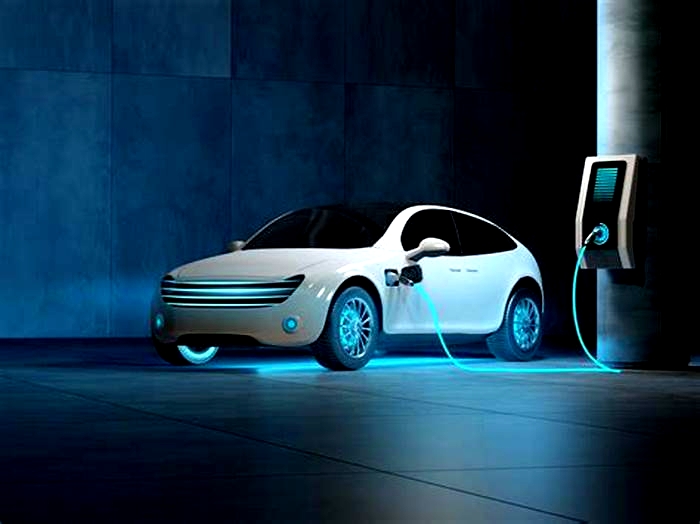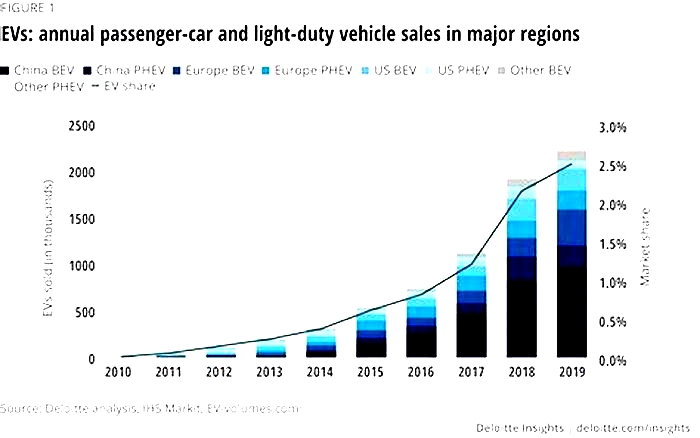Is electric or hydrogen cars better for the future
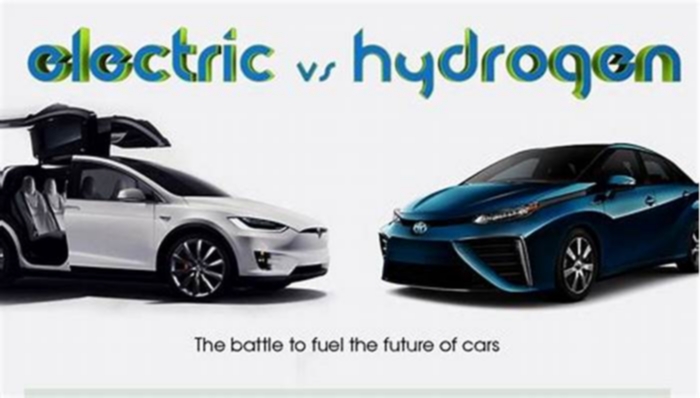
Will hydrogen overtake batteries in the race for zero-emission cars?
Hydrogen is a beguiling substance: the lightest element. When it reacts with oxygen it produces only water and releases abundant energy. The invisible gas looks like a clean fuel of the future. Some of the worlds top automotive executives are hoping it will dethrone the battery as the technology of choice for zero-emissions driving.
Our EV mythbusters series has looked at concerns ranging from car fires to battery mining, range anxiety to cost concerns and carbon footprints. Many critics of electric vehicles argue that we should not ditch petrol and diesel engines. This article asks: could hydrogen offer a third way and overtake the battery?
The claim
Many of the strongest claims for hydrogens role in the automotive world come from chief executives at the heart of the industry. Japans Toyota is the most vocal proponent of hydrogen, and its chair, Akio Toyoda, last month said he believed the share of battery cars would peak at 30%, with hydrogen and internal combustion engines making up the rest. Toyotas Mirai is one of the only hydrogen-powered cars that is widely available, alongside the Nexo SUV from South Koreas Hyundai.
Oliver Zipse, the boss of the German manufacturer BMW, said last year: Hydrogen is the missing piece in the jigsaw when it comes to emission-free mobility. BMW may be investing heavily in battery technology but the company has its BMW iX5 Hydrogen fuel cell car in testing albeit using Toyota fuel cells. Zipse said: One technology on its own will not be enough to enable climate-neutral mobility worldwide.
The science
Hydrogen is the most abundant element in the universe but that does not mean it is easy to come by on Earth. Most pure hydrogen today is made by splitting carbon from methane, but that produces carbon emissions. Zero-emissions green hydrogen comes from electrolysis: using clean electricity to split water into hydrogen and oxygen.
To use hydrogen as a fuel it can be burned, or it can be used in a fuel cell: the hydrogen reacts with the oxygen from the air in the presence of a catalyst (often made from expensive platinum). That strips electrons that can run through an electric circuit, charging a battery that can power an electric motor.
Hydrogen offers refuelling in four minutes, higher payloads and longer range, according to Jean-Michel Billig, the chief technology officer for hydrogen fuel cell vehicle development at Stellantis. (The Mirai goes 400 miles on a fill-up.) Stellantis, which last month started production of hydrogen vans in France and Poland, is targeting businesses that want vehicles in constant use and do not want the downtime required for charging.
They need to be on the roads, Billig said. A taxi not running is losing money.
Many energy experts do not share the enthusiasm of the hydrogen carmakers
Stellantis thinks it can drive the sticker price down. Billig said that he expected by the end of this decade, hydrogen mobility or BEV will be equivalent from a cost perspective although the company will make both.
Many energy experts do not share the enthusiasm of the hydrogen carmakers. The Tesla boss Elon Musk describes the tech as fool sells: why use green electricity to make hydrogen when you can use that same electricity to power the car?
Every transformation of energy involves wasted heat. That means that hydrogen fuels inevitably deliver less energy to the vehicle. (Those losses increase much further if the hydrogen is burned directly or used to make e-fuels that can replace petrol or diesel in a noisy, hot internal combustion engine.)
David Cebon, a professor of mechanical engineering at the University of Cambridge, said: If you use green hydrogen it takes about three times more electricity to make the hydrogen to power a car than it does just to charge a battery.
That could improve slightly but not enough to challenge batteries. Its difficult to do very much better, Cebon said.
Michael Liebreich, the chair of Liebreich Associates and the founder of the analyst firm Bloomberg New Energy Finance, created an influential hydrogen ladder a league table ranking hydrogen uses on whether there are cheaper, easier or more likely options. He placed hydrogen for cars in the row of doom, with very little chance of even a niche market.
Can hydrogen overtake batteries in cars? The answer is no, said Liebreich, without a moments hesitation. Carmakers betting on a large share for hydrogen are just wrong, and heading for an expensive disappointment, he added.
The key problem for hydrogen cars is not the fuel cell but actually getting the clean hydrogen where it is needed. The gas is highly flammable with all the safety concerns that entails must be stored under pressure and leaks easily. It also carries less energy per unit volume than fossil fuels, meaning it would require many times more tankers unless on-site electrolysers are used.
Investments are coming in hydrogen supplies, with heavy government subsidies in the US and Europe. But so far there has been a chicken-and-egg problem: buyers dont want hydrogen cars because they cant fill them, and there are no filling stations because there are no cars. Across Europe there are 178 hydrogen filling stations, half of which are in Germany, according to the European Hydrogen Observatory. Compare nine UK hydrogen stations with 8,300 petrol stations or 31,000 public charging locations (not counting plugs at homes).
Any caveats?
So why does the International Energy Agency think that hydrogen will account for 16% of road transport in 2050 in its pathway to net zero? The answer lies mostly with bigger vehicles such as buses and lorries.
Liebreich said he was convinced that batteries would still dominate energy supply for heavy goods vehicles to the point of co-founding a lorry charging company. There might be some hydrogen in HGVs but it will be the minority, he said.
Even Toyota acknowledges that hydrogen in cars has so far not been successful, mainly because of the lack of fuel supply, according to its technical chief, Hiroki Nakajima, speaking to Autocar in October. Lorries and long-distance buses offer a better hope for the technology, although it is also prototyping a hydrogen version of its Hilux pickup truck.
The verdict
The economics of hydrogen will change as governments enthusiasms wax or wane. Other things could change: technology could improve (within limits) and make the gas more attractive, and prospectors may be able to find cheaper white hydrogen drilled from the ground.
Yet for cars the die appears to be cast: batteries are already the post-petrol choice for almost every manufacturer. In the UK there have been fewer than 300 sales of hydrogen vehicles over 20 years, compared with 1m electric cars, according to the Society of Motor Manufacturers and Traders.
Batteries domination is likely to be extended as the money pouring into research and infrastructure addresses questions of range and charging times. Compared with that flood of investment, hydrogen is a trickle.
Hydrogens advocates now face the question of whether they can build profitable businesses in longer-distance, heavy-duty road transport. They need an answer soon on where they will source enough green, cheap hydrogen and whether the gas would be better used elsewhere.
Hydrogen vs electric cars: Which is better?
As car manufacturers look for alternatives to petrol- and diesel-fuelled internal combustion engines (ICE), one potential option to be developed is hydrogen cars.
But are hydrogen cars a real alternative to the battery electric cars that carmakers now see as the future of zero-emissions motoring?
We consider the current state of hydrogen and electric cars, compare what each offers and look at which ones well be driving in the future.
What is an electric car and how does it work?
Electric vehicles (EVs) are powered by electricity, stored in a rechargeable battery array, which drives an electric motor: the motor then creates a magnetic field that turns a rotor shaft, which drives the cars wheels. Most electric cars use one motor, but some models have two motors (usually one at the front axle and another at the back), offering more power.
Battery packs in EVs comprise stacks of lithium-ion cells, like the ones in a smartphone or laptop battery. The batteries are rechargeable, so must be plugged into a mains outlet to charge, either at home or at a public chargepoint.
EVs also feature regenerative braking, which takes energy from the wheels when the driver applies brakes, which would previously just have been lost, and uses it to top up the battery.
What is a Hydrogen car and how does it work?
Hydrogen cars are technically hydrogen fuel cell cars, because theyre fitted with a fuel cell that is essentially a small hydrogen-fuelled power station.
High-pressure hydrogen gas is pumped into the cars fuel tank, which combines with oxygen from the air around it and is fed to the hydrogen fuel cells, where it comes into contact with the anode and cathode. An electrochemical reaction takes place, the hydrogen molecules breaking into protons (water) and electrons (electricity) to power the car.
The water is waste and the only emission from a hydrogen car as you can see in Mats review of the Toyota Mirai below. The electricity produced is stored in a battery, which powers a motor that moves the wheels, like a regular EV.
Pros and cons of electric cars
Pros of electric cars:
- Infrastructure: Compared to hydrogen cars, electric cars have a pretty advanced charging infrastructure, with home, workplace and public charging networks. In contrast, there are just 15 hydrogen fuelling locations in the UK.
- Cheaper: Even though EVs are more expensive than petrol or diesel cars, they are more affordable than the couple of models on sale, the Toyota Mirai and Hyundai Nexo. The cost and convenience of recharging batteries isnt matched by that of pumping hydrogen, either.
- Maintenance: EVs have very few moving parts, so maintenance is far easier and quicker, without the need for oil changes. Adding a fuel cell a portable power station, in effect to a car adds a lot more complexity if issues arise.
- Emissions: Electric cars run silently and produce no pollution or emissions. Hydrogen cars are much the same, although they do emit water as a by-product of the electrochemical reaction.
Cons of electric cars:
- Limited range: After being used to being able to travel hundreds of miles on a tank of petrol or diesel, the range of an EV is one of its biggest drawbacks, along with the time it takes to charge a battery.
- Battery lifespan: The lifespan of batteries will be limited and well need to find ways of recycling them sustainably. We might also need to develop ways to replace old batteries with new ones.
- Limited charging stations: The rollout of EV charging infrastructure is happening, but there are questions about whether its happening fast enough. Theres certainly an argument that were not yet ready for a nation of EV drivers.
Pros and cons of hydrogen cars
Pros of hydrogen cars:
- Refuelling: Filling a hydrogen cars tank will only take a few minutes, much as we do now with petrol or diesel. The hydrogen is stored at a low temperature and high pressure, so it takes no time to pump.
- Range: Hydrogen cars offer a 400-mile range from a single tank of fuel. In comparison, only a few high-end EVs have battery packs large enough to come close to such a range.
- Zero emissions: A hydrogen car might emit water, but thats harmless, so it is a zero-emission vehicle when it comes to CO2 or the myriad other pollutants from an internal combustion car.
Cons of hydrogen cars
- Gas pumps: With the limited refuelling options in the UK there are less than 20 hydrogen fuel pumps across the entire country hydrogen cars are not a viable option for most drivers.
- Expensive: The two hydrogen models on sale are not cheap to buy and refuelling isnt cheap, either.
- Production: The production of hydrogen can be energy-intensive and often rely on various non-renewable sources, which counteracts the zero-emissions nature of a hydrogen car.
Eight key difference between hydrogen vs electric cars
Range
The driving range of EVs depends largely on the size of a battery and size of the car. More expensive EVs with larger batteries tend to have longer ranges. Typical EV ranges currently range from around 100 miles to around 350 miles. Hydrogen cars, on the other hand, offer a better driving range along and a shorter refuelling time. The distance a hydrogen can cover ranges from 400 to 600 miles, depending on the size of the tank.
Refuelling
The UK currently has very few hydrogen filling stations, so hydrogen vehicles lack the required infrastructure to make it possible for large numbers of drivers to adopt the technology. Even with the current adolescent state of charging in the UK, you can find thousands of charging stations for EVs.
Refuelling time
It only takes around five minutes to pump the high-pressure hydrogen gas into the tank of a hydrogen car. In comparison, an EV can take up to 20 hours or more to charge, using a standard domestic plug, but even the fastest public chargers will take 20 minutes to top up the battery.
Environmental impact
While driving a hydrogen car, the only emission it releases is pure water vapor, while the process of taking in oxygen from the surrounding air also means filtering out ultrafine particulates. Although EVs dont emit any pollutants, they can have an impact on the environment, with the manufacturing and disposal of EV batteries leading to concerns about resource depletion.
Efficiency
Converting hydrogen into electricity in a fuel cell is a complex process, so a hydrogen car is already at a disadvantage compared to an EV. In fact, even though hydrogen cars are more energy efficient than ICE cars, EVs still outdo them in the efficiency stakes. EVs can convert 80% of the electricity in the battery into energy, while hydrogen cars currently convert a maximum of about 40%.
Safety
Hydrogen cars use hydrogen in gas form, which is highly inflammable, to create the electrical energy to move the wheels. Advanced designs and safety precautions make driving hydrogen vehicles a little less risky, but drivers are still sitting on top of a tank full of inflammable gas. With EVs, the safety concern is based on lithium-ion batteries being exposed to fire. Although EVs come with a few risks, driving an electric car is safer than a hydrogen-powered one.
Emissions
Neither hydrogen nor electric cars produce CO2 emissions directly from their exhausts. However, a considerable amount of CO2 is released during the manufacturing process of both electric and hydrogen cars, and the manufacturing process of producing electricity and hydrogen.
Costs
EVs are more expensive to buy than the ICE cars were used to driving, but the cost is starting to fall as manufacturers start to benefit from the efficiencies of mass production. Hydrogen cars are even more expensive than EVs, with the Hyundai Nexo and Toyota Mirai both costing in the range of 60,000-70,000
Is hydrogen power or electric power better?
As the two technologies currently stand, EVs are set for world domination over the coming decades, with hydrogen consigned to limited use on longer-range and heavier vehicles.
Part of the reason for that is the costs of producing hydrogen and storing it under high pressures and at very low temperatures. Producing hydrogen on the kind of industrial scale required for transport use takes large amounts of fossil fuels and the use of methane, which is an even more potent greenhouse gas than CO2. There are renewable methods and these might yet yield advances in hydrogen production but they are more expensive, so hydrogen production uses CO2-intensive methods that are self-defeating as we strive for Net Zero.
With expensive fuel that is hard to come by, there seems little chance of hydrogen cars becoming mass-market products. The only hope will be someone developing a cheap and easy way of extracting hydrogen which is, let us not forget, the most abundant chemical substance in the universe for use in vehicles.
On the other hand, EVs use electrical energy directly from the grid to charge a battery and power the vehicle. There are concerns about how we generate that grid electricity, but the UK is increasingly using renewables, which will lower the amount of CO2 being emitted when generating what powers EVs.
The other concerns about EVs the rare earth materials being used in batteries and the range of EVs could also be addressed by technological development. If you look at how automotive technology has developed in the last few decades and consider that were at the start of the EV revolution, advancement is probable, not just possible. Using different elements and chemistries in batteries could revolutionise ranges and make them more recyclable and sustainable.
Looking for an easy way to change your car? Then carwow is the place to go. You can sell your old car for a great price, and get the best deals on a new one. All through our network of trusted dealers and all from the comfort of your home. Tap the button below to get started today.

